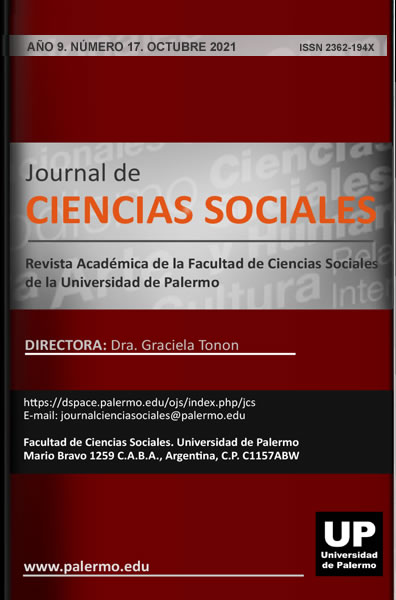Processes of sociocultural incorporation of the immigrant population: assimilation and multiculturality
Abstract
In this essay the different approaches and aspects regarding the incorporation of immigrants are highlighted. Specifically, the socio-political and cultural concepts and ideas are analyzed from which terms such as multiculturalism, assimilation, pluralism, integration or acculturation derive. For this, a critical analysis of different authors is carried out, talking between the different terms and observing the consequences that the different perspectives have when studying the incorporation of immigrants from a continuum that goes from total and forced assimilation to multiculturalism / interculturalism. It is therefore a question of unraveling the complexity of the sociocultural policies that are produced in host societies regarding the assimilation / integration of immigrants and the multiple relationships that can occur due to the encounter of different cultures. For this analysis, in the first place, we take into account conceptualization, that is, what we understand by certain terms such as assimilation, pluralism, integration or multiculturalism. Once the concepts have been clarified, we asked ourselves about the return of certain assimilationist policies that seemed to have disappeared, but which may have returned in more complex and subtle ways. As a result of this new assimilation, we wonder about the heterogeneity of these processes in the different immigrant groups, to end up questioning the management of cultural diversity in its different grades, from assimilation to multiculturalism / interculturalism.
Downloads
References
Alba, R. y Nee, V. (1997). Rethinking Assimilation Theory for a New Era of Immigration. International Migration Review, 31(4), 826-874. https://doi.org/10.2307/2547416
Bauböck, R. (2003). ¿Adiós al Multiculturalismo? Valores e identidades compartidos en las sociedades de inmigración. Revista de Occidente, (268), 45-61.
Brubaker, R. (2001). The return of assimilation? Changing perspectives on immigration and its sequels in France, Germany, and the United States. Ethnic and Racial Studies, 24(4), 531-548. https://doi.org/10.1080/01419870120049770
Cruz, E. (2013). Multiculturalismo e interculturalismo: una lectura comparada. Cuadernos Interculturales, 11(20), 45-76.
Foner, N. (2007). How exceptional is New York? Migration and multiculturalism in the empire city. Ethnic and Racial Studies, 30(6), 999-1023. https://doi.org/10.1080/01419870701599440
Gans, H. J. (1997). Towards a Reconciliation of “Assimilation” and “Pluralism”: The Interplay of Acculturation and Ethnic Retention. International Migration Review, 31(4), 875-892. https://doi.org/10.1177/019791839703100404
Gans, H. (2007). Acculturation, assimilation and mobility. Ethnic and Racial Studies, 30(1), 152-164. https://doi.org/10.1080/01419870601006637
Glazer, N. (1993). Is Assimilation Dead? The ANNALS of the American Academy of Political and Social Science, 530(1), 122-136. https://doi.org/10.1177/0002716293530001009
Grillo, R. (2007). An excess of alterity? Debating difference in a multicultural society. Ethnic and Racial Studies, 30(6), 979-998. https://doi.org/10.1080/01419870701599424
Silberman, R., Alba, R. y Fournier, I. (2007). Segmented assimilation in France? Discrimination in the labour market against the second generation. Ethnic and Racial Studies, 30(1), 1-27. https://doi.org/10.1080/01419870601006488
Zhou, M. (1997). Segmented Assimilation: issues, controversies, and recent research on the new second generation [Special Issue: Immigrant Adaptation and Native-Born Responses in the Making of Americans]. International Migration Review, 31(4), 975-1008. https://doi.org/10.2307/2547421
Žižek, S. (1998). Multiculturalismo, o la lógica cultural del capitalismo multinacional. En F. Jameson y S. Žižek, Estudios culturales. Reflexiones sobre el multiculturalismo (pp. 137-188). Paidós.
The authors retain the rights to their work guaranteeing this journal the right of first publication, committing to cite the Journal of Social Sciences as a reference of the original publication.
The works published in the Journal are published under the terms indicated in the Creative Commons License with the International Attribution 4.0 (CC BY 4.0).




























